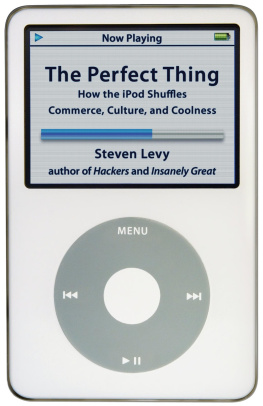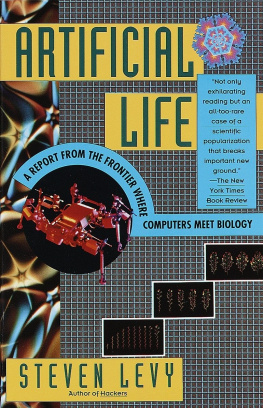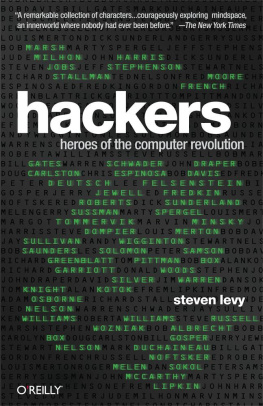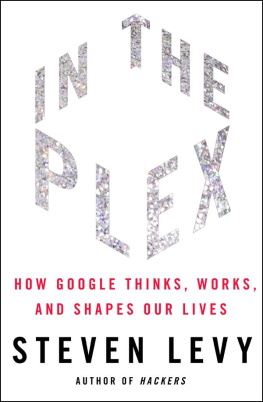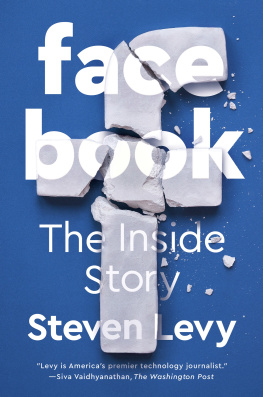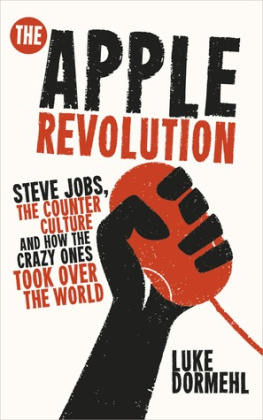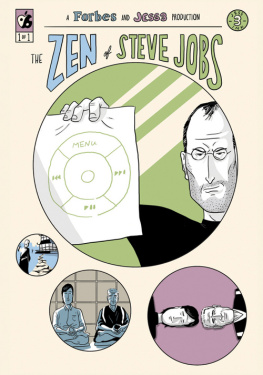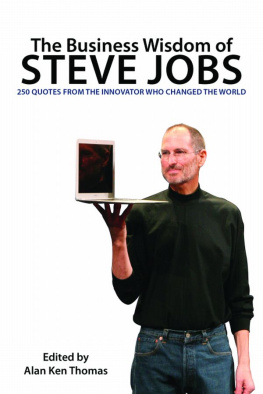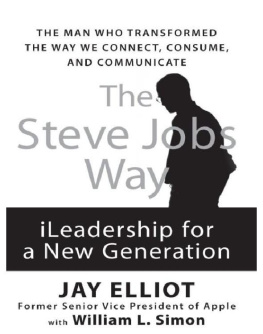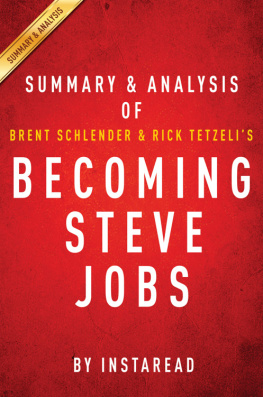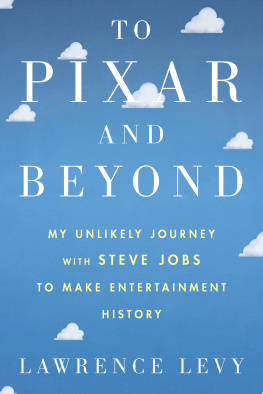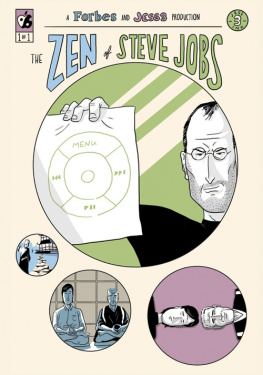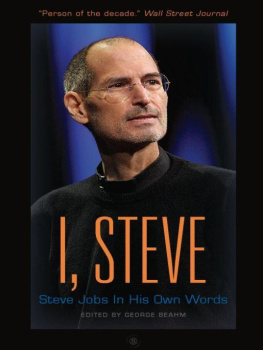Contents
Author's Note xi
iPod Timeline xv
Perfect
Identity
Origin
Cool
Personal
Download
Shuffle
Apple
Podcast
Coda
Notes
Acknowledgments
Index
Author's Note
From following the iPod since its inception, both as a reporter and someone bound to his subject literally by the ears, I came to understand that one feature in particular was not only central to the enjoyment of this ingenious device but has come to symbolize its impact on the larger media landscape-and perhaps to embody the direction of the digital revolution in general.
Shuffle.
As I document in these pages, mixing one's music library in the high-tech version of fifty-two pickup is a source of constant delight and, at least for me, a stepping-stone to ruminations on computer intelligence, randomness, and the unintended effects produced by a well-designed system. But music is not the only thing the iPod, and its retail-business brother, the iTunes Music Store, shuffles.
Downloading podcasts-of commercial and public radio shows or home-brew audio concoctions-adds the intimacy of old-fashioned radio to the mix. And by offering television shows and music videos for sale, Apple has generated a gold rush of a la carte programming that has, essentially, shuffled the now-obsolete television schedule. Can prose be far behind? Just as I was finishing this book, my former Wired editor Kevin Kelly wrote in The New York Times Magazine, in a manifesto on the future of the book,
"Just as the music audience jiggles and reorders songs into new albums (or 'playlists,' as they are called in iTunes) the universal library will encourage the creation of virtual bookshelves .... Indeed, some authors will begin to write books ... to be remixed as pages."
Early in the process of planning The Perfect Thing, I decided to organize it by aspects of the iPod, instead of in a chronological narrative. One day, while, appropriately, shuffling songs on my iPod, I had an idea that could spiritually link my book to its subject: I would shuffle the chapters. Each one would be written to stand on its own and not require others as antecedents-in other words, this would not be the second side of Abbey Road, where one tune segues into another, but more Like Revolver or Rubber Soul, where the order seems more arbitrary. Okay; one of these essays-the first, which is an introduction-would be locked in as the permanent leadoff hitter. But after that, just like the playlist or whole music library when the iPod's shuffle menu is selected, the other eight chapters would be mixed-and mixed several times-to create several "shuffles" of the book. The book you are holding in your hand may be ordered differently from someone else's copy.
This is not a salvo against the vast majority of books where the order of the chapters is absolutely essential. I could not imagine that architecture going away. I firmly believe that linear narrative will always be with us, and thank God for that. This is a onetime experiment that seemed propitious because no readers will be harmed by reading the chapters in the order chosen by our random selection process. Nonetheless, while I revel in digital technology, I admit to worrying sometimes about its consequences. Clearly, when the physical media of CDs, DVDs, and paper recede and the TV Guide schedule of the twentieth century is supplanted by the Google-esque search box we find in iTunes, there's no telling what the cultural consequences might be.
By shuffling my chapters, I hope to spotlight these issues-and to have some fun, another thing that squares with the spirit of the iPod. If you have your own thoughts on The Perfect Thing's shuffle, feel free to join the discussion at www.stevenlevy.com.
iPod Timeline
October 2001
Original iPod
July 2002
Second-generation iPod (touch-sensitive scroll wheel)
PC-based iPods
April 2003
Third-generation iPod, with four buttons above the wheel
iTunes Music Store opens for Mac users, with 99-cent downloads
October 2003
iTunes and iTunes Music Store for Windows
January 2004
iPod mini, 25 percent smaller, in five colors
July 2004
Fourth-generation iPod, with click wheel
October 2004
iPod photo with color screen
Black and red U2 iPod Special Edition
January 2005
iPod shuffle: no screen or wheel
September 2005
iPod nano replaces mini
October 2005
Fifth-generation "video" iPod
iTunes store sells music videos and TV shows
The Perfect Thing
Perfect
Just what is it about the iPod?
It weighs 6.4 ounces and consists of a few layers of circuit boards and electronic components, covered by a skin of white polycarbonate and stainless steel. It's slightly smaller than a deck of cards. On the front is a screen smaller than a Post-it note, perched over a flattened wheel. It doesn't have an on-off switch. If you didn't know what it was, you might guess that it was a sleek, high-priced thermostat, meant to control temperature in a high-priced condominium. A very sexy detached thermostat that feels very good when you palm it. But you almost certainly do know what it is-a portable digital music player that holds an entire library of tunes-because it is the most familiar, and certainly the most desirable, new object of the twenty-first century.
You could even make the case that it is the twenty-first century.
It arrived in October 2001, bringing the promise of pleasure to a world in transformation from its comforting analog roots to a disruptive digital future. The world did not fete it with parades. In October 200 l, the world had its own problems. The newcomer was welcomed by fans of Apple Computer, the company that makes the iPod, and there was a generalized feeling that a new twist in gadgetry had arrived. There were some glowing reviews in newspapers and magazines. But ... this? No one expected this.
Here's what this is. The triumph of the iPod is such that the word "success" falls far short of describing it. Its massive sales don't begin to tell the story. When Apple began work on the crash project that would become the iPod, its leaders saw the device as an enhancement of the Macintosh computer-which despite a recent rejuvenation had not gained more than a 4 percent share of the PC market. To that end, the iPod was seen as somewhat of a breakthrough, a significant one with the potential to nudge the company in a new direction. But none of the wizards at Apple headquarters in Cupertino, California, could know that the iPod would become the most important product in Apple's history since 1984's trailblazing Mac computer (if not more important). No one thought that within four years it would change Apple from a computer company to a consumer electronics giant deriving almost 60 percent of its income from music-related business. No one thought the iPod would change the music business, not only the means of distribution but even the strategies people would use to buy songs.
No one envisioned subway cars and airplane cabins and street corners and school lounges and fitness centers where vast swathes of humanity would separate themselves from the bonds of reality via the White Earbud Express. No one expected that there would be magazine covers and front-page newspaper stories proclaiming this an "iPod Nation." No one predicted that listening to the iPod would dethrone quaffing beer as the most popular activity for undergraduate college students. And certainly no one thought that the name of this tiny computer

